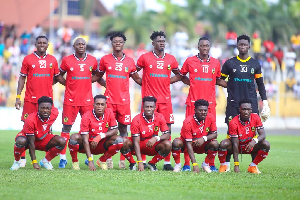A pilot project that uses community incentives to improve maternal and child health is underway in three districts of the Upper West Region.
The project, known as Community Benefits Health (CBH), uses non-monetary incentives that benefit entire communities to cultivate support for women seeking skilled health care during pregnancy and childbirth.
Community Benefits Health is one of the five projects underway in Ghana, Sierra Leone and Kenya initiated by Concern Worldwide, USA, under its programme Innovations for Maternal, Newborn and Child Health, called “Innovations.”
A Wa-based NGO, Pronet North supported by a grant from the Bill & Melinda Gates Foundation is implementing the CBH project in 34 communities in Lambussie, Wa West and Jirapa districts.
A statement issued by Mrs Dela Kokroko Gle, Senior Programme Manager for the CBH project, noted that the programme’s goal is to change the behaviour of the entire community so that it commits to pregnant mothers and newborns to get the healthcare they need to survive and thrive.
These include reaching not just individual women but key decision-makers in their lives, like their husbands and mothers-in-laws, and other influential people in the community.
It seeks to make improved maternal health care the community’s social norm that everyone promotes and supports, by disseminating health messages about pregnancy, childbirth and newborns through community durbars, dramas, videos, radio, posters and peer educators.
The statement said to help reach the goal, the initiative offered incentives like a borehole for clean water and an emergency transport system that benefit communities.
To obtain it, the community must meet targets it has chosen that lead to improved maternal health behaviours.
The targets have included men and chiefs who regularly attend educational meetings about health care during pregnancy and childbirth where they learn to appreciate the importance of male accompanying pregnant wives for ante natal care.
They also acquire expertise in how to access skilled delivery and postnatal care; reminding pregnant women to take their medications as prescribed, ensuring that pregnant women take nutritious food and helping with household chores when wives become pregnant.
The communities get the benefits once they reach their targets, in the case of the borehole, it’s built in three stages as three key targets are met. These villages have already celebrated reaching two targets.
Specifically, the CBH programme aims to increase the number of women who seek four antenatal care visits beginning early in their pregnancy, skilled delivery and a post-delivery health check for mother and baby.
In addition, it encourages women to start breastfeeding as soon as their baby is born and to continue breastfeeding exclusively for at least six months.
Mrs Gle observed that “A pregnant woman may want or need to go to a health facility but if her husband or village elders discourage her then she may not receive antenatal care and may eventually deliver without a skilled attendant. This poses challenges to the health of a woman and her baby.”
“The CBH project will motivate commitment and behavioural change among the whole community,” Dela said.
“Men, women and key decision makers in a woman’s life will understand and commit to prioritising good maternal newborn and child health care and support.”
She added: “This programme will contribute to national efforts in improving maternal, newborn and child health and position Ghana to better achieve Millennium Development Goals 4 and 5 and the Sustainable Development Goal 3.1.”
Health News of Wednesday, 22 July 2015
Source: GNA
















